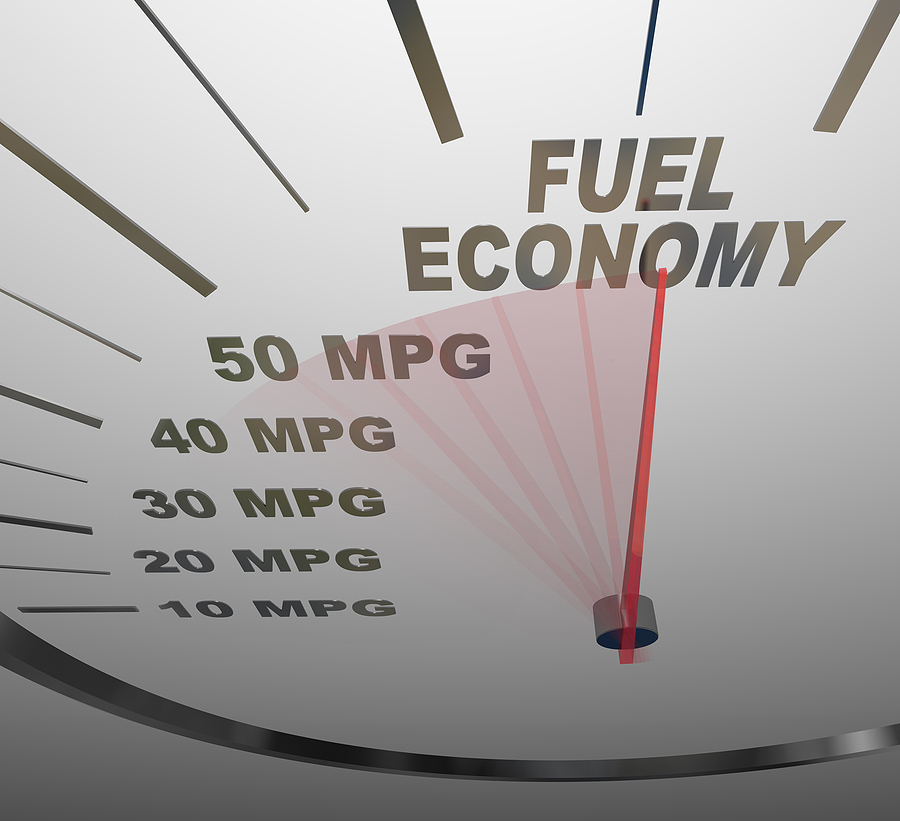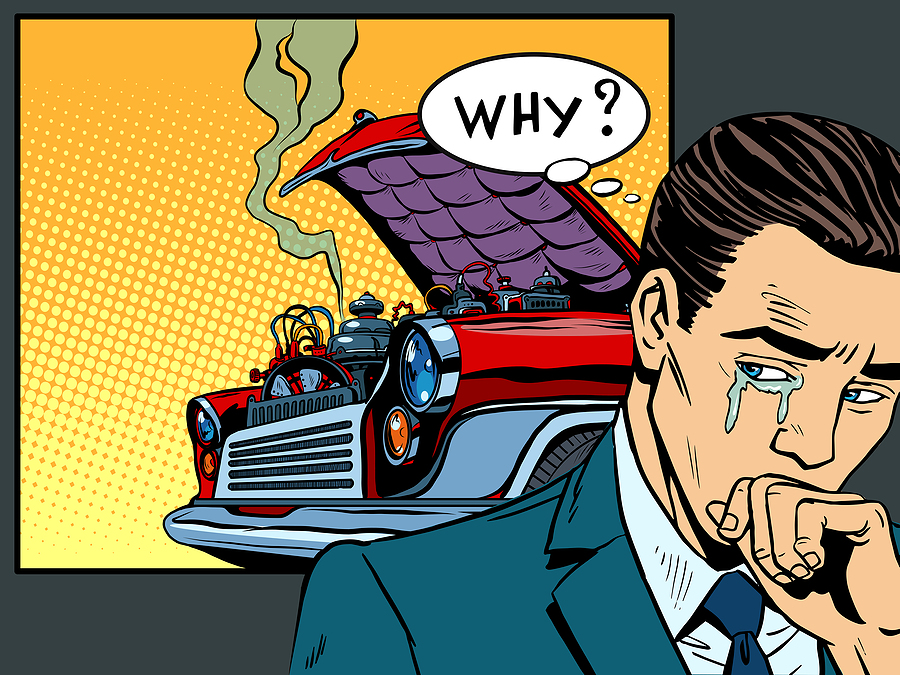Your car’s fuel economy isn’t just about saving money at the pump—it’s a window into your vehicle’s overall health. When an older sedan, SUV, or light truck starts consuming more fuel than usual, it’s often signaling that something needs attention under the hood.
Understanding these warning signs can help you catch problems early, potentially saving hundreds of dollars in repairs. More importantly, recognizing when your vehicle has reached the end of its useful life can help you make informed decisions about whether to invest in costly repairs or explore other options.
This guide will walk you through the most common indicators of declining fuel efficiency, what causes them, and practical steps you can take to address these issues before they become expensive problems.

Common Signs Your Vehicle Is Losing Fuel Efficiency
Decreased Miles Per Gallon (MPG)
The most obvious sign of poor fuel efficiency is when your gas mileage drops noticeably from its typical range. If your SUV that normally gets 25 MPG is suddenly struggling to reach 20 MPG, something has changed.
Keep track of your fuel consumption over several fill-ups to establish a clear pattern. A gradual decline over time is normal as vehicles age, but sudden drops of 10% or more warrant investigation.
More Frequent Gas Station Visits
You’ll likely notice this change before you calculate the exact numbers. If you find yourself filling up more often than usual while maintaining similar driving habits, your vehicle’s fuel system may be struggling.
Unusual Engine Noises and Performance Issues
Several sounds can indicate fuel efficiency problems:
- Knocking or pinging sounds during acceleration often signal improper fuel combustion
- Rough idling may indicate fuel delivery issues
- Hesitation or stuttering during acceleration suggests the engine isn’t getting the right fuel-air mixture
Dark or Unusual Exhaust Smoke
Your exhaust can tell you a lot about fuel combustion:
- Black smoke typically indicates too much fuel in the mixture
- Blue smoke suggests oil burning, which affects fuel efficiency
- White smoke (beyond normal condensation) may signal coolant issues affecting engine performance
Check Engine Light Activation
Modern vehicles use sensors to monitor fuel efficiency continuously. When the check engine light comes on, it often indicates issues that directly impact gas mileage, such as faulty oxygen sensors or catalytic converter problems.
What Causes Poor Fuel Efficiency in Older Vehicles
Air Filter and Intake Issues
A dirty air filter restricts airflow to the engine, forcing it to work harder and consume more fuel. In older vehicles, the mass air flow sensor can also become contaminated, sending incorrect readings to the engine’s computer.
Tire Problems
Under-inflated or worn tires create additional rolling resistance. Even a 10 PSI drop in tire pressure can reduce fuel economy by a measurable amount. Misaligned wheels also force the engine to work harder to maintain speed.
Fuel System Components
Several fuel system parts commonly fail in older vehicles:
- Fuel injectors can become clogged with deposits, affecting fuel delivery
- Oxygen sensors may provide inaccurate readings, leading to improper fuel mixtures
- The catalytic converter can become less efficient at processing exhaust gases
Engine Maintenance Issues
Worn spark plugs don’t ignite fuel efficiently, leading to incomplete combustion. Old engine oil creates more friction, requiring additional energy to overcome resistance.
Simple DIY Checks and Maintenance Tasks
Easy Tasks (5-10 minutes)
- Check Tire Pressure: Use a tire pressure gauge when tires are cool. Inflate to the pressure listed on your door jamb sticker, not the maximum pressure on the tire sidewall.
- Inspect the Air Filter: Remove the air filter housing and examine the filter. If it looks dirty or clogged with debris, replacement is needed. Most filters cost $10-20 and take minutes to replace.
- Visual Inspection of Exhaust: Look for unusual smoke colors during startup and while idling.
Moderate Tasks (30-60 minutes)
- Clean the Mass Air Flow Sensor: Disconnect the sensor (usually located between the air filter and throttle body) and clean it with specialized MAF cleaner spray. Allow it to dry completely before reinstalling.
- Check Spark Plugs: Remove one spark plug to examine its condition. Worn or fouled plugs should be replaced as a set. This task requires basic tools and some mechanical knowledge.
- Engine Oil Change: Fresh oil reduces internal friction and helps maintain optimal fuel economy. Follow your vehicle’s recommended oil change intervals.
Safety Reminders
Always ensure your vehicle is parked on level ground with the engine cool before beginning maintenance. Wear safety glasses and gloves when working with automotive fluids or components.
Get Your Junk Vehicle Appraised for Free Today! ✨
When Professional Help Is Necessary
Some fuel efficiency issues require professional diagnosis and repair. Consider visiting a qualified mechanic when you encounter:
- Persistent check engine lights that don’t clear after basic maintenance
- Complex fuel system problems requiring diagnostic equipment
- Catalytic converter or emissions system issues
- Engine performance problems that don’t respond to simple fixes
Estimated Professional Repair Costs
Understanding potential repair costs helps you make informed decisions:
- Oxygen Sensor Replacement: $150 – $300
- Catalytic Converter Replacement: $300 – $1,200
- Fuel Injector Cleaning or Replacement: $100 – $400
- Spark Plug Replacement: $80 – $250
- Tire Replacement: $100 – $300 per tire
Disclaimer: Repair costs can vary widely depending on your location, the specific make and model of your vehicle, and the mechanic you choose. The prices listed above are estimates and should be used as a general guide only. Always obtain a detailed quote from a qualified mechanic before proceeding with any repairs.
When to Consider Scrapping Your Vehicle
Sometimes the most economical decision is letting go of an older vehicle rather than investing in expensive repairs. Consider scrap car disposal when:
- Repair costs exceed 50% of your vehicle’s current value
- Multiple systems are failing simultaneously
- Your car has been declared a total loss by insurance
- You have an uninsured vehicle with significant mechanical problems
Understanding Junk Car Scrap Values
Auto salvage yards pay for vehicles based on their weight and material composition:
- Sedans: Typically range from $100 to $400
- SUVs: Generally fetch between $200 and $500 due to their larger size
- Light Trucks: Often yield $250 to $600, reflecting their robust build and higher material content
Scrap values depend on current market prices for scrap metal and can vary by location. Even non-running vehicles have value for their materials and usable parts.
The Scrapping Process
Working with a reputable auto salvage yard is straightforward. Most yards provide free towing and handle the necessary paperwork for title transfer. This option is particularly valuable for total loss vehicles or cars with expired registration where traditional selling methods aren’t practical.
Frequently Asked Questions
How often should I check my fuel efficiency?
Monitor your MPG every few fill-ups to establish baseline performance. Calculate it manually by dividing miles driven by gallons purchased for the most accurate readings.
Can I improve fuel efficiency without major repairs?
Yes, basic maintenance like keeping tires properly inflated, replacing air filters, and using quality fuel can improve efficiency by 5-15% in many cases.
How do I know if repairs are worth the investment?
Compare total repair costs to your vehicle’s current market value. If repairs exceed 50-75% of the car’s worth, consider your alternatives carefully.
What paperwork do I need to scrap my vehicle?
You’ll typically need the vehicle title and a valid ID. Some states require additional forms, so check with your local auto salvage yard for specific requirements.
RECAP
Poor fuel efficiency doesn’t have to drain your wallet indefinitely. Start with simple maintenance tasks like checking tire pressure and replacing your air filter. These basic steps often yield immediate improvements in gas mileage.
For more complex issues, obtain professional estimates before committing to repairs. Remember that older vehicles with multiple problems may be better candidates for responsible disposal rather than costly repairs.
If your car has reached the end of its useful life, don’t let it sit unused in your driveway. Get a free, no-obligation quote for scrapping your old vehicle at a reputable auto salvage yard. You’ll free up space while putting some cash back in your pocket—money you can put toward a more fuel-efficient replacement.
Related Post: Automotive Problems That Are Heavy on Your Pocket

